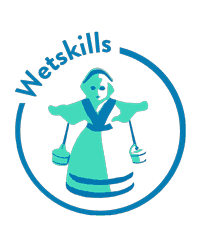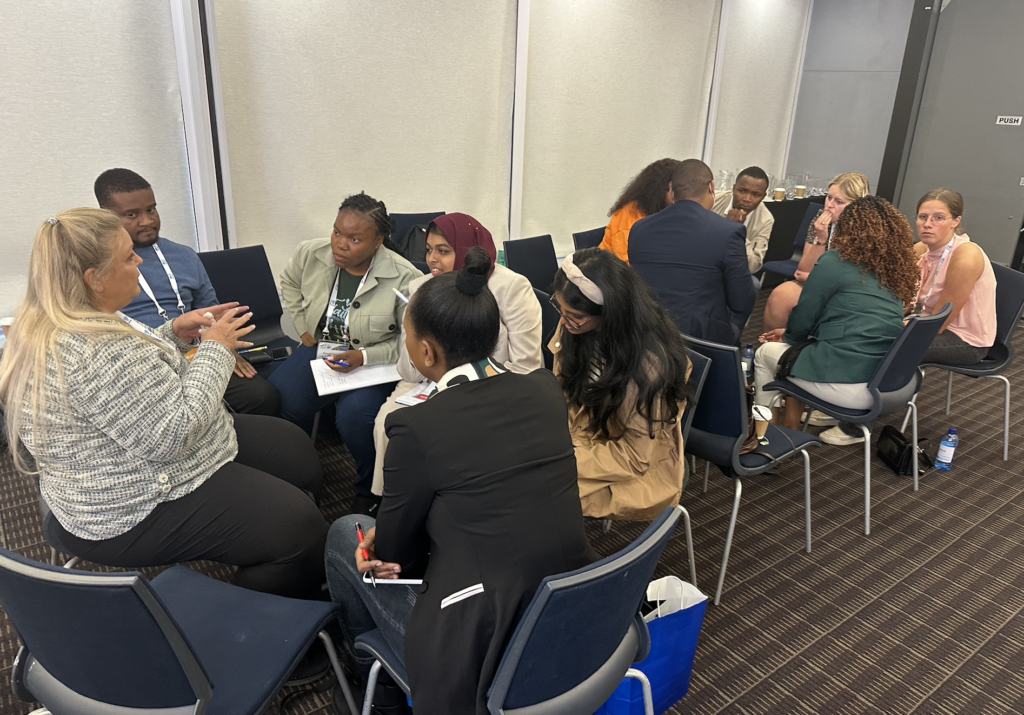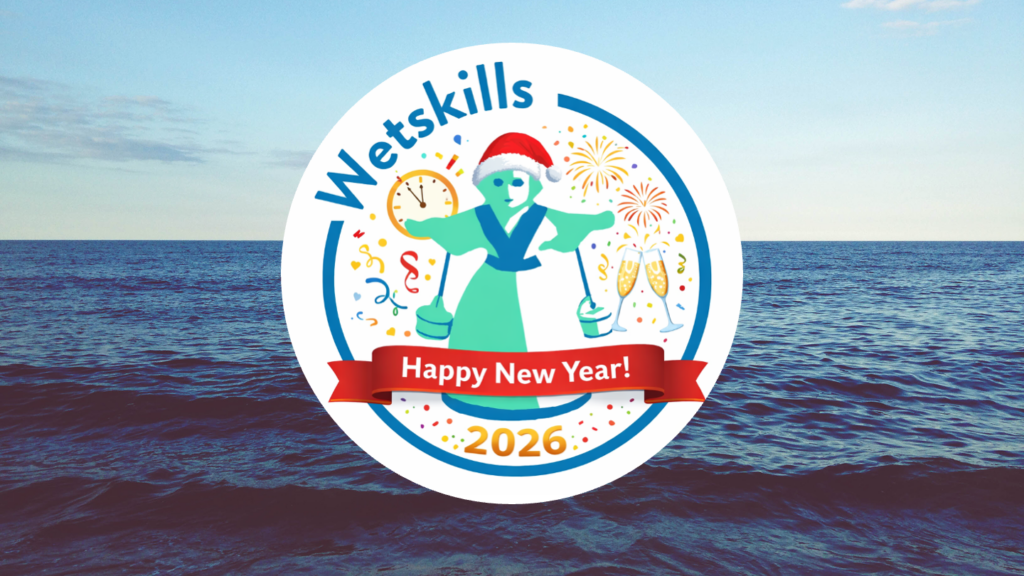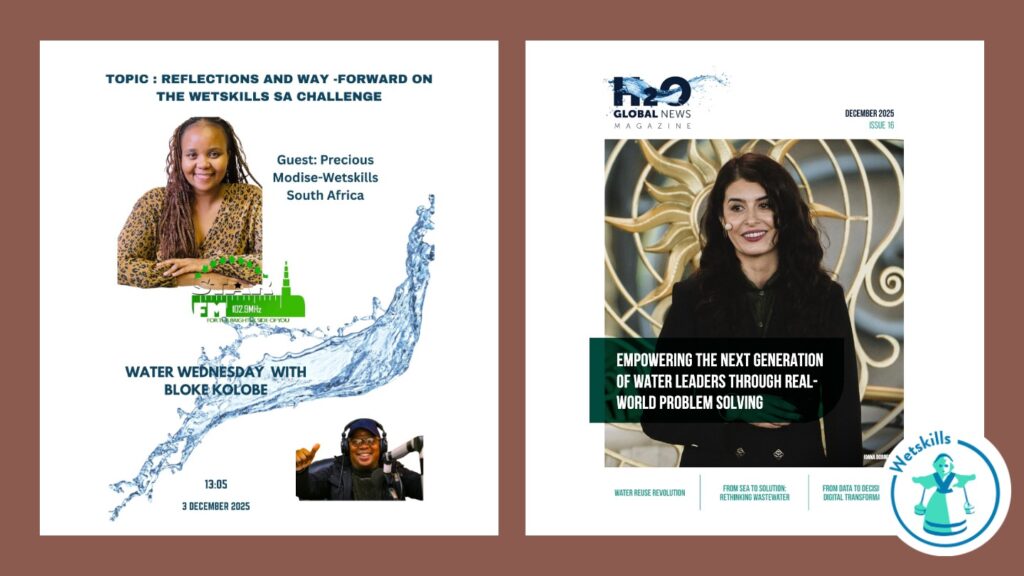On 13 June 2024, The Wetskills Foundation hosted another pivotal event after the Finals of Wetskills-South Africa 2024: the WetsNext Workshop. This workshop extended the momentum of the Wetskills Challenge by focusing on transforming innovative ideas into actionable projects. It brought together diverse participants, including industry leaders, young professionals, scholars, and governmental and non-governmental representatives.
The session, aptly named “WetsNext: From Innovation to Implementation,” aimed to advance feasibility studies and nurture emerging concepts under the guidance of case custodians, Wetskills alumni, and stakeholders like WISA-YWP, the Water Research Commission, the Department of Water and Sanitation, YEP, Rand Water, Talbot, the Netherlands Embassy, the Durban University of Technology, and Dutch Water Authorities.
Johan Oost, Managing Director of The Wetskills Foundation, kicked off the session with an enthusiastic welcome and an introduction to the Wetskills initiative. He highlighted the program’s success in fostering innovative solutions to global water challenges, emphasising the critical need to move beyond brainstorming to implementation.
Following Oost’s opening remarks, Ambassador Joanne Doornewaard took the stage. Her presence underscored the international support and recognition of Wetskills’ efforts. In her stirring speech, Doornewaard addressed the pressing water issues facing the world today, from floods and droughts to pollution. She cited the recent devastating storms in KwaZulu-Natal as a stark reminder of the urgent need for innovative solutions.
“Climate change is exacerbating water scarcity, and our infrastructure struggles to keep pace with demand,” Doornewaard remarked. “Initiatives like Wetskills and WetsNext are crucial. They turn bright ideas into tangible solutions, ensuring that creativity meets practicality.”
Her words resonated deeply with the audience, setting a determined tone for the workshop. Ambassador Doornewaard shared an inspiring example from Lesotho, where a WetsNext project successfully piloted erosion blankets made from biodegradable materials. This project protected vital wetlands and demonstrated the power of youthful innovation in addressing environmental challenges.
Craig Tinashe Tanyanyiwa, Regional Manager for Southern Africa at Wetskills Foundation, then outlined the workshop’s objectives, stressing the importance of feasibility studies and stakeholder involvement. Jorik Greven from Van Hall Larenstein University of Applied Sciences presented recent research, setting the stage for the case presentations.
The workshop featured detailed presentations from WetsNext case owners, each offering a glimpse into their innovative projects and the journey towards implementation. Phomolo Khonthu of the ReNOKA Programme in Lesotho captivated the audience by discussing installing erosion blankets, a short-term solution to combat soil erosion in wetlands. This project illustrated how downstream riparians could influence upstream watersheds crucial to their survival, highlighting the importance of cross-regional cooperation in water management.
Dr. Hendrik Ewerts from Rand Water Academy provided an insightful retrospective on aligning previous Wetskills cases with Rand Water’s strategic mandate. He discussed how these cases, after further research and development, could be integrated into Rand Water’s operations to address key risks and improve water security. His presentation underscored the potential for synergy between research and practical application in solving real-world water issues.
Theasha Naidoo from Talbot and a Wetskills alumna from last year’s edition presented an innovative approach to water usage optimisation and recovery in a chicken factory. Her project, part of a Wetskills case in 2023, focused on integrating real-time monitoring and machine learning algorithms to enhance process efficiencies. By optimising water consumption and treatment processes within the production facility, her team aimed to significantly reduce the environmental footprint of the factory significantly, showcasing a model for sustainable industrial practices. The system is currently being implemented, with Talbot operating it under a 15-year contract.
Following these presentations, the workshop transitioned into a World Café-style session, where participants engaged in lively discussions about the 2024 cases. They explored potential partners, study areas, funding opportunities, and implementation strategies, fostering a collaborative environment that encouraged exchanging ideas and forming actionable plans.
More införmation: Craig Tinashe Tanyanyiwa.



